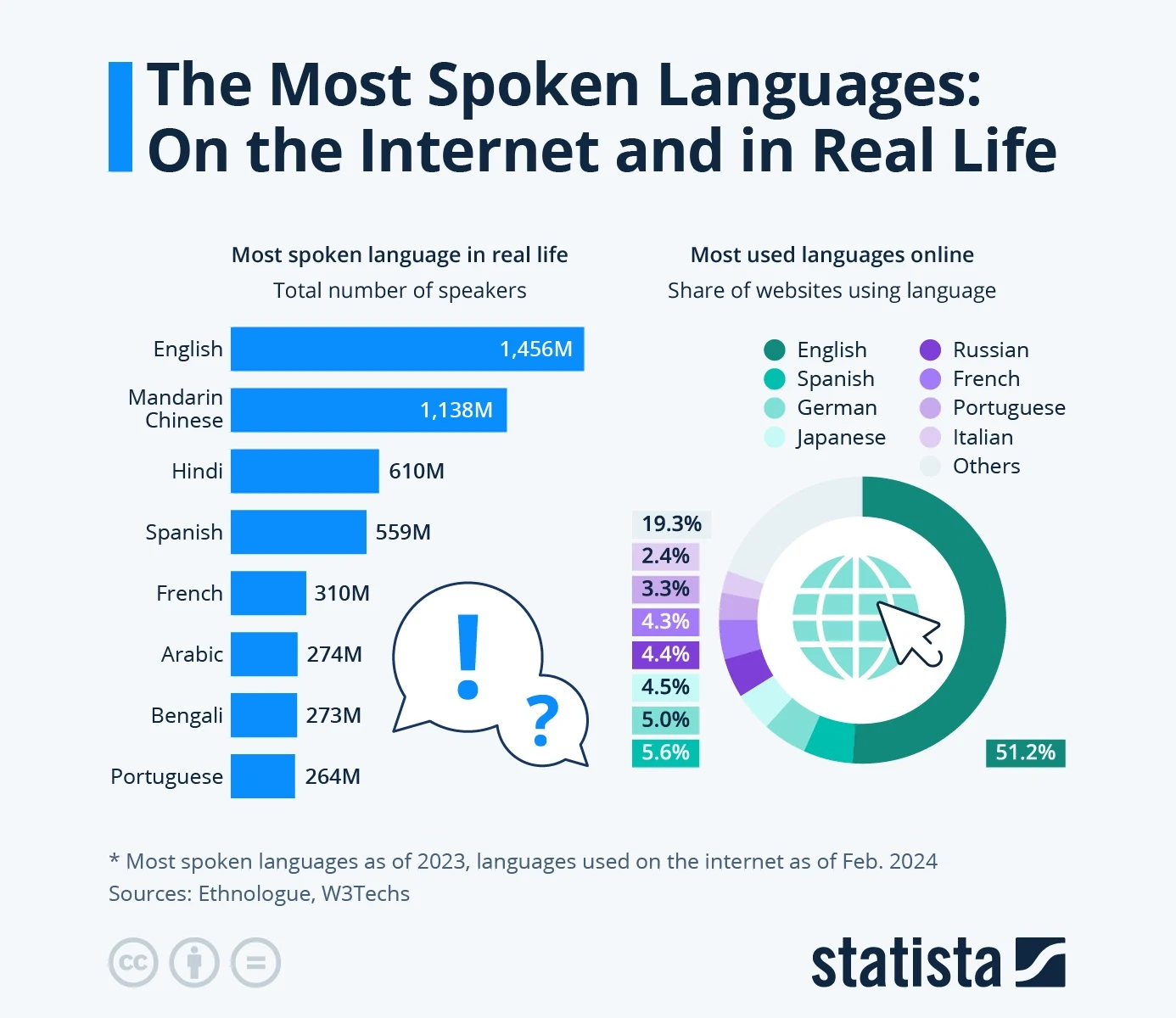Globalization continues to peak in today’s modern world where the significance of language in terms of breaking barriers cannot be emphasized enough.
After all, what better way to unite with others and take part in global chats in the world of tech than this? Remember, the internet belongs to those who speak a language featuring a footprint that goes above and beyond the realms of your own nation.
That’s exactly where the English language comes into play. It’s something that links individuals from all across the globe. As per W3Techs’ estimates, close to 50% of all websites make use of the English tone as their main form of communication. And since English is your best bet in terms of maximizing the potential of your viewers online and enhancing engagement, most people focus so much on that.
But this new study is raising the curtain on how English might not be the only means of communication and the mark it has left in terms of a global footprint isn’t too large.
Estimates arising from Ethnologue proved how just 1.4 billion users spoke English. Out of those, just 380 million would be declared native speakers.
While this does make the English language one of the world’s highly spoken languages globally, others cannot be excluded as shown in this infographic. Mandarin and Chinese account for 1.14 billion individuals globally and that also entails 940 million individuals that can be considered native speakers.
All English speakers are still making up less than 20% of the global population so rough estimates prove how 4 out of 5 individuals globally aren’t able to properly comprehend what’s being said in more than half of the websites present today. Exceptions are there because of translation tools but that’s beside the point here.
The infographic sheds light on some of the world’s most spoken languages including Chinese, Arabic, Hindi, and a few others that aren’t represented well online. Others worth a mention include German, English, as well as Russian which have bigger footprints on the internet than what they might be possessing around the globe today.
Therefore, the next time someone tells you that it’s English that happens to be the only source of communication online, you might wish to enlighten them with the findings of this study.
Chart via Statista.
Read next: Nearly Half of American TikTok Users Never Post Videos, per Pew Research Center
After all, what better way to unite with others and take part in global chats in the world of tech than this? Remember, the internet belongs to those who speak a language featuring a footprint that goes above and beyond the realms of your own nation.
That’s exactly where the English language comes into play. It’s something that links individuals from all across the globe. As per W3Techs’ estimates, close to 50% of all websites make use of the English tone as their main form of communication. And since English is your best bet in terms of maximizing the potential of your viewers online and enhancing engagement, most people focus so much on that.
But this new study is raising the curtain on how English might not be the only means of communication and the mark it has left in terms of a global footprint isn’t too large.
Estimates arising from Ethnologue proved how just 1.4 billion users spoke English. Out of those, just 380 million would be declared native speakers.
While this does make the English language one of the world’s highly spoken languages globally, others cannot be excluded as shown in this infographic. Mandarin and Chinese account for 1.14 billion individuals globally and that also entails 940 million individuals that can be considered native speakers.
All English speakers are still making up less than 20% of the global population so rough estimates prove how 4 out of 5 individuals globally aren’t able to properly comprehend what’s being said in more than half of the websites present today. Exceptions are there because of translation tools but that’s beside the point here.
The infographic sheds light on some of the world’s most spoken languages including Chinese, Arabic, Hindi, and a few others that aren’t represented well online. Others worth a mention include German, English, as well as Russian which have bigger footprints on the internet than what they might be possessing around the globe today.
Therefore, the next time someone tells you that it’s English that happens to be the only source of communication online, you might wish to enlighten them with the findings of this study.
Chart via Statista.
Read next: Nearly Half of American TikTok Users Never Post Videos, per Pew Research Center

